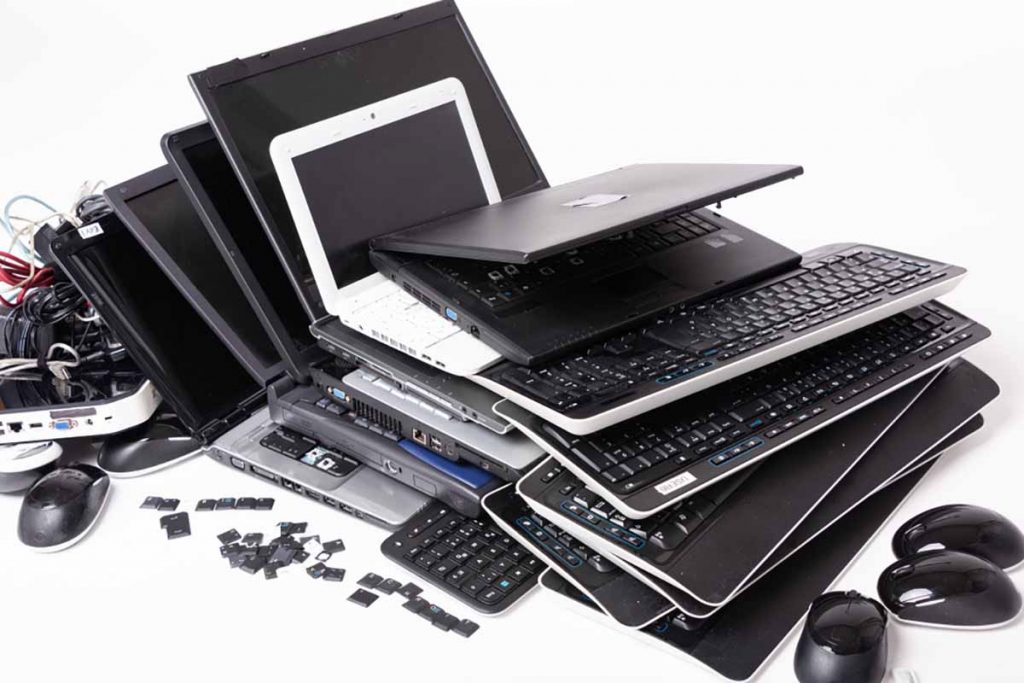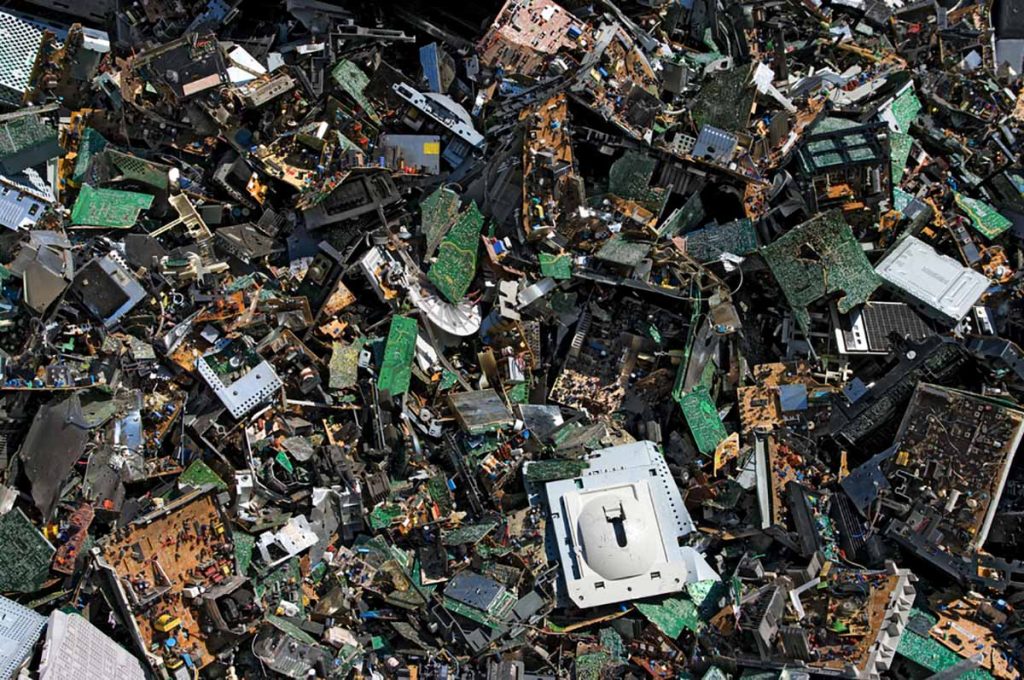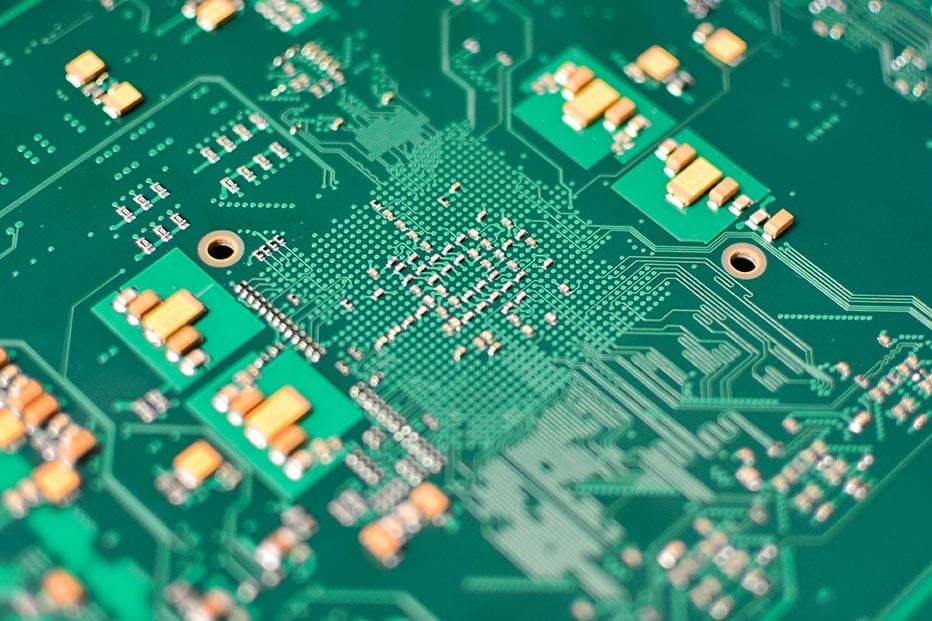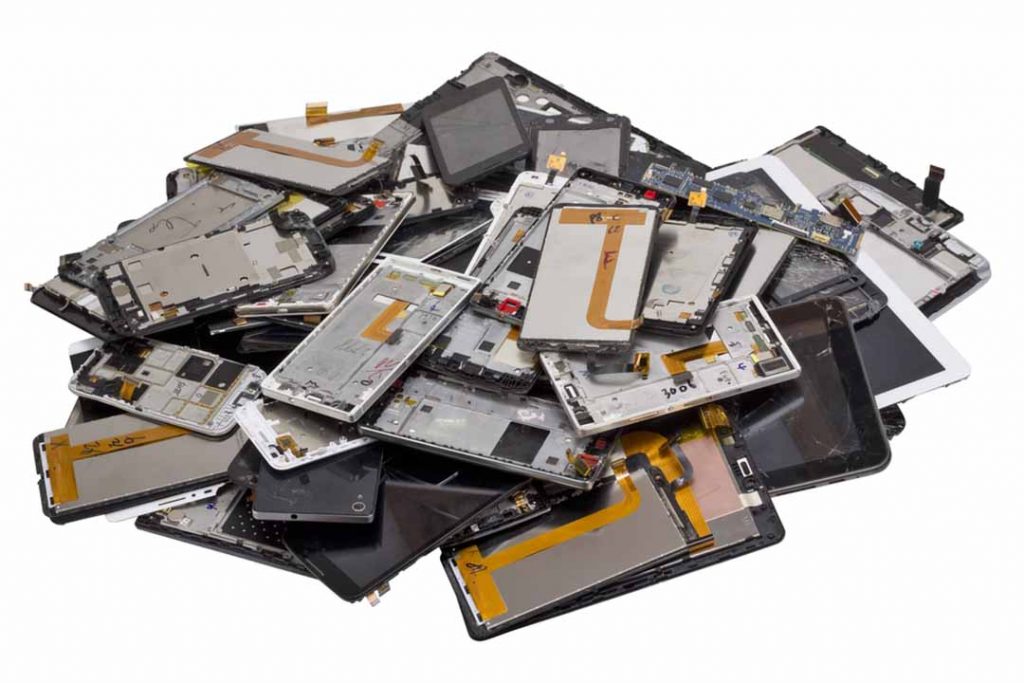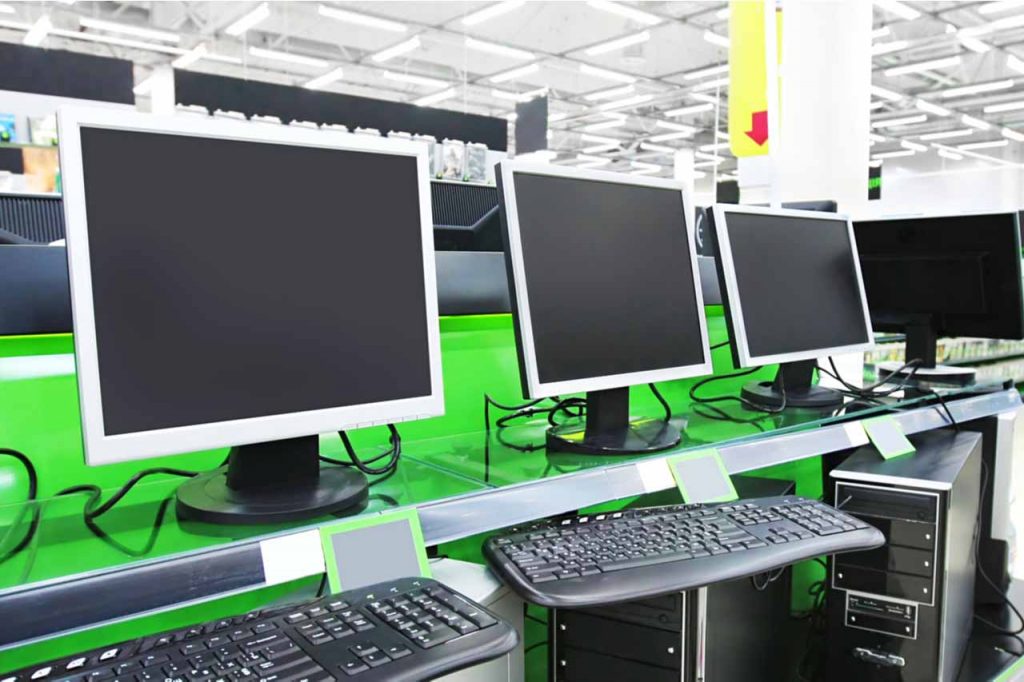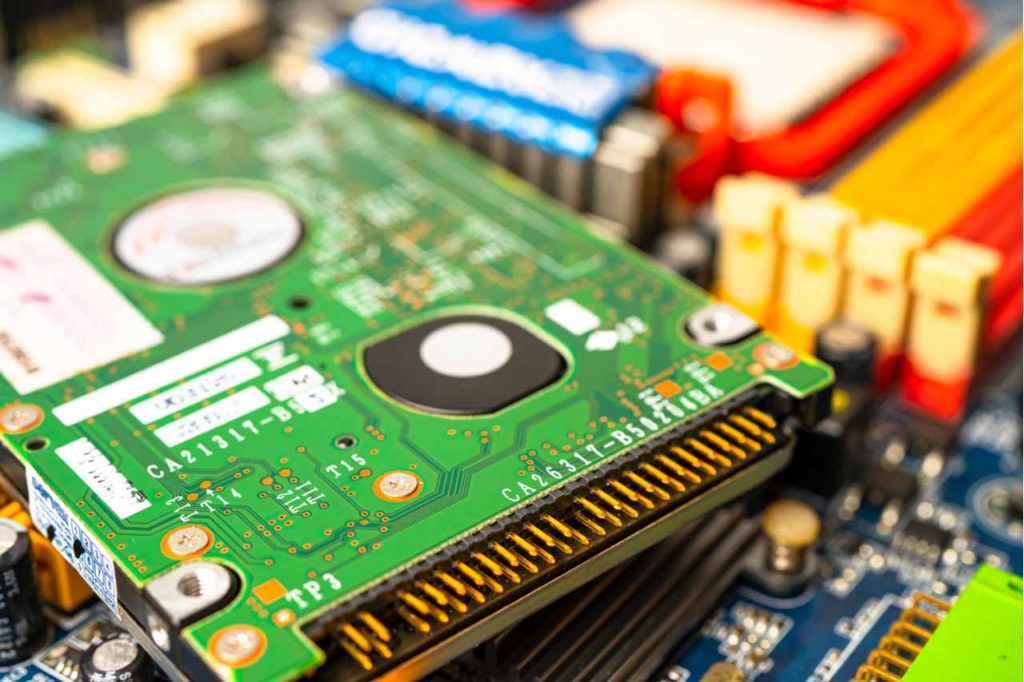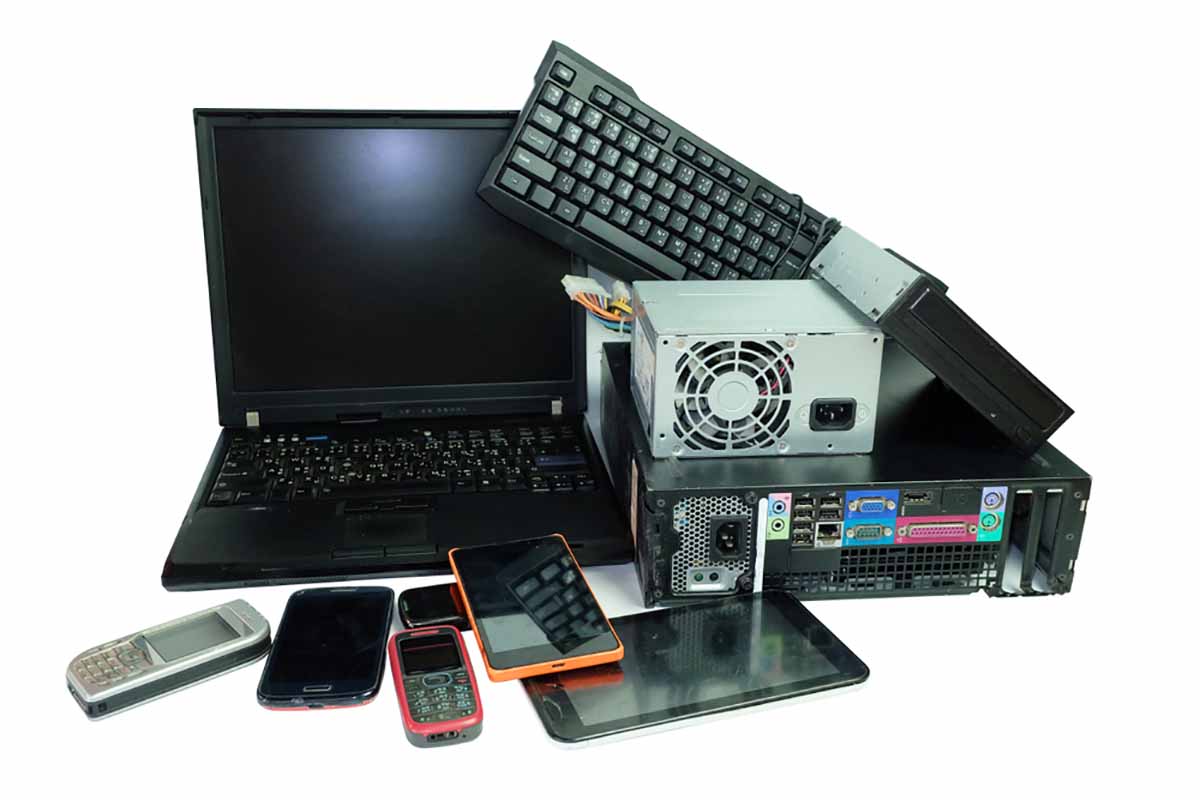
E-scrap generation, by weight, is down by almost 10% compared with its peak in 2015. | DAMRONG RATTANAPONG/Shutterstock
The weight of electronics entering the recycling stream has dropped consistently since hitting its peak in 2015, according to new research. The shift has implications for device processing and policy development.



